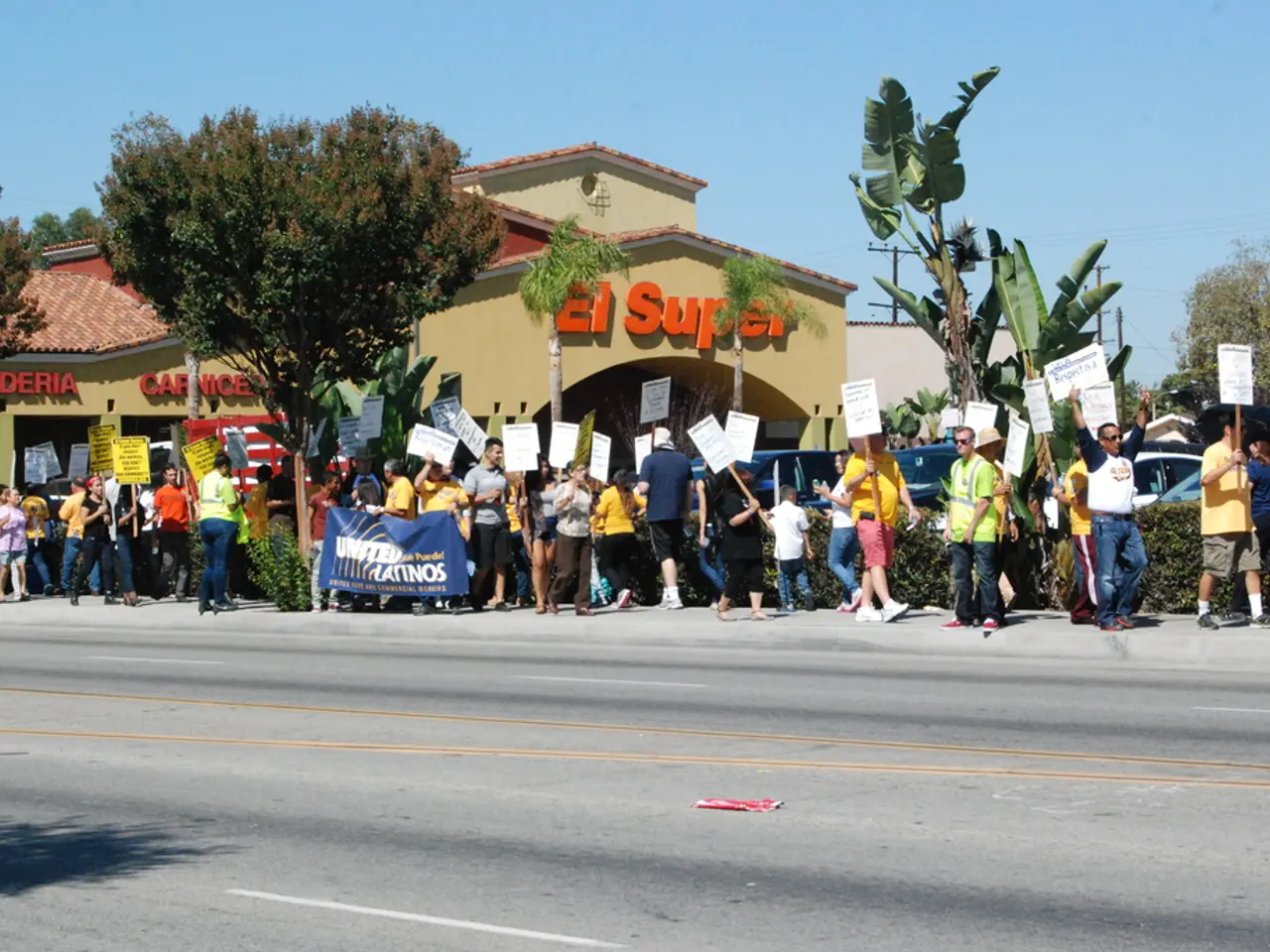Judge in Ohio Grants Sanders' Plea: Allows 17-year-olds to Join Primary Elections
In a significant ruling, Ohio Judge Richard Frye has decided that individuals who turn 18 by the state primary election are eligible to vote in that primary election, including for presidential nominees. This decision could potentially expand the voter base and influence the upcoming election.
The ruling is based on Ohio's law, which requires voters to be at least 18 years old to participate in state and local elections, including primaries. This aligns with the U.S. Constitution's 26th Amendment, which prohibits age-based voting restrictions for citizens 18 and older in federal, state, and local elections.
Nine teenagers from across the state filed a lawsuit this week, claiming that Ohio Secretary of State Jon Husted's interpretation of state law, which eliminated their voting rights, was incorrect. The lawsuit argues that Husted's interpretation contradicts a previous ruling by the state Supreme Court that allows 17-year-olds who will be 18 by the election to vote in primaries.
The ruling allows 18-year-olds to register and vote in the primary, potentially increasing the voter base with newly eligible young voters. This could impact candidate strategies and voter turnout dynamics, as well as potentially shifting the electorate's composition and affecting issues and candidates prioritized.
Husted has announced his intention to appeal the ruling, citing concerns about the potential impact on a close election and the need for clarity from the Supreme Court. However, the judge's decision may affect potentially thousands of other 17-year-old voters who wish to participate in the primary election.
One of the affected students is Alexis Brossart, a 17-year-old student at Milford High School outside Cincinnati. Brossart registered to vote in February and had been looking forward to participating in the election. She was informed last week that she cannot vote for a presidential nominee due to Husted's interpretation of state law.
The attorney for the nine teenagers involved in the lawsuit stated that the teenagers have become more engaged in the voting process due to the issue. The attorney plans to file an appeal if Husted's decision is not overturned.
It is important to note that Ohio offers voter registration online, by mail, and in person, and permits pre-registration for those under 18, allowing seamless transition to eligible voters once they turn 18. Absentee and early voting options are also available to all eligible voters, including 18-year-olds, enabling broader participation in the primary election.
The Ohio primary has 66 delegates at stake for the Republicans and 159 for the Democrats. The outcome of the primary could have significant implications for the presidential nominations of both parties.
The ruling promoting broader democratic participation could have meaningful effects on election results through increased youth voter engagement. The appeal of the ruling is due to concerns about its potential impact on a close election and the need for clarity from the Supreme Court.
[1] Ohio Revised Code § 3503.01(A)(1) [2] Ohio Secretary of State, Voter Registration Information, https://www.sos.state.oh.us/elections/voters/register/ [3] U.S. Constitution, 26th Amendment, https://www.archives.gov/founding-docs/amendments-11-27 [4] Ohio Revised Code § 3503.21(A)
- The ruling about Ohio's voter eligibility, which allows individuals who turn 18 by the state primary election to vote, could potentially influence the upcoming election and has the potential to impact policy-and-legislation regarding war-and-conflicts and general-news, as it may shift the electorate's composition.
- The ongoing debate about the Ohio primary election, with its implications on the number of eligible voters and potential impact on a close election, is a significant topic in politics, exemplifying the importance of policy-and-legislation and its influence on the rights of citizens and the outcome of war-and-conflicts and general-news.








